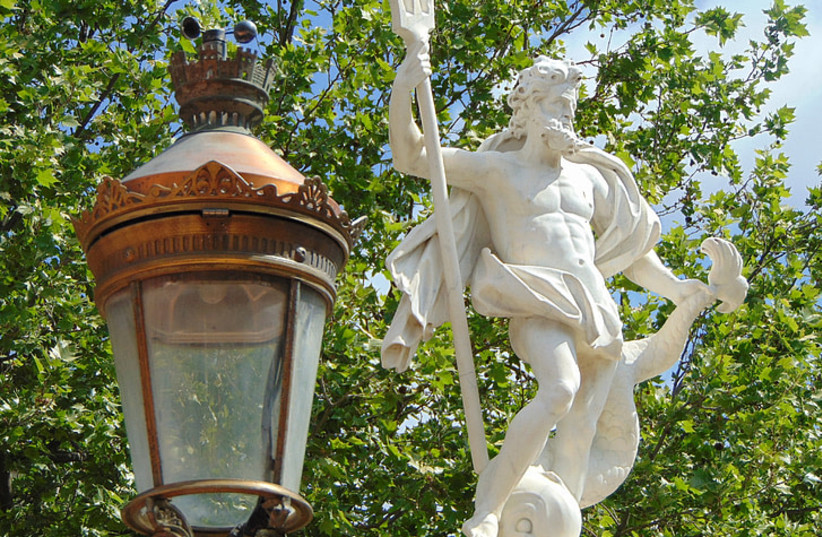Archaeologists uncover parts of long-lost temple of a cult of Poseidon
Greek archaeologists have managed to uncover a long-lost cult sanctuary dedicated to the god Poseidon in the ancient city of Helike, according to the Greek Culture Ministry.
The discovery was made following years of excavations in a long-lost ancient city, itself the remnants of a powerful city-state from antiquity.
The city itself was destroyed in mysterious circumstances still debated by scholars, but ancient legends attributed it to the wrath of Poseidon, the city’s angry patron deity.
What is Helike and its ancient cult of Poseidon?
Helike was once an ancient Greek city-state dating back to the Bronze Age, located on the Peloponesse Peninsula along the Gulf of Corinth.
It is a city steeped in both history and legend, described as being a military power that participated in the Trojan War. However, the myths also describe it as having been somewhat small.
 Poseidon, god of the sea, earthquakes and horses. (credit: Hippopx)
Poseidon, god of the sea, earthquakes and horses. (credit: Hippopx)Despite this, its geopolitical role as a regional power was said to be attributed to the support of its patron deity, Poseidon, the Greek god of the seas and earthquakes.
Myths aside, that the city adopted Poseidon as its chief deity is certainly true, and is evident from the coins found in its ruins, which showcase Posteidon’s face on one side and a trident, his godly symbol, on the other.
The city’s temple of Poseidon was famed throughout the ancient world, as was its other Panhellenic temple.
However, the city was destroyed in the 4th century BCE due to what is believed to be an earthquake and tsunami. Ironically, a city that worshiped the god of seas and earthquakes was apparently destroyed by the sea and an earthquake.
Though archaeologists scoured the seas for over a century but eventually succeeded in 2001, finding it in an ancient lagoon near the village of Rizomylos, with regular excavations happening ever since.
Over the course of these excavations, researchers have managed to uncover many significant findings of the once great city-state. This includes the famed sanctuary of Poseidon.
Now, researchers managed to look even closer at the temple complex, specifically investigating two buildings, one of which dates all the way back to the eighth century BCE.
In this excavation, archaeologists managed to uncover pottery, some of which dated back to the ninth century BCE, the bronze head of a snake, and part of a mythical creature such as a sphinx that was likely part of an architectural relief dating back to sixth century BCE.
Also present was evidence of sacrificial offerings, iron weapons, chariot wheels, clay and bronze statuettes, and some gold.
According to excavation member and archaeozoologist Dr. G. Kazantzis, there was evidence that the religious worship in the temple included animal sacrifices, offering goats, sheep, and pigs. Furthermore, an archaeopotany professor with the excavation found that evidence in the soil that there was also large grape harvests in the area, indicating that wine was also likely used in these ceremonies.
But another interesting fiscovery was that not only was this temple dedicated to Poseidon, which was likely the main deity in the complex, but there was also evidence of another god being worshiped at the site. As for which god that may have been, the researchers are still unclear, and are going to investigate the findings further to find out.
Perhaps the most signficiant finding, though, was that this building was likely flooded very frequently. Despite the natural hazards that would imply, though, locals kept coming to the temple and maintained it, with the archaeologists believing that the sanctuary was of such significance to worshipers that they would rather continuously rebuild the temple rather than go elsewhere.
These findings add to the growing collection of information about this long-lost ancient power, helping put together the pieces of the mystery of its days of glory and eventual demise.





Comments are closed.